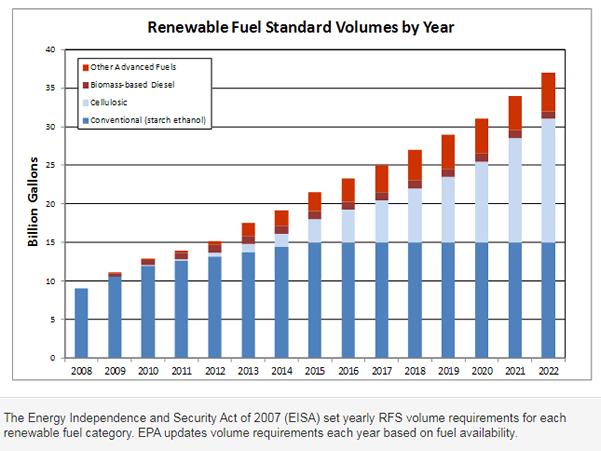The U.S. Senate Committee on the Environment and Public Works arranged a hearing on Wednesday February 16th to consider the Renewable Fuels Standard (RFS). Generally regarded as a ‘sacred cow’ of politics for over three decades it is considered unusual that any committee of Congress would even question any aspect of the RFS. The Chairman of the Committee Senator Tom Carper (D-DE) noted that the RFS had not been considered by the oversight Committee since 2016. He observed, “Since the implementation of the program we have come a long way towards achieving our goals. Economic growth in agricultural communities has expanded and our fuels have become significantly cleaner than they were two decades ago.” Sen. Carper noted the lack of progress in developing advanced biofuels. This is not for lack of effort and investment but any biofuel other than corn-based ethanol including cellulosic sources has proven to be a technical and financial disaster.
 |
Senator Joni Ernst (R-IA) rejected most of the submissions to the hearing that were detrimental to ethanol, claiming that escalation in gas prices can be attributed to a rise in crude oil and is not due to the imposition of the system of Renewable Identification Numbers (RINs) that have imposed high costs on refiners of gasoline.
 The hearing allowed Senator Ernst to place on record Renewable Fuel Association talking points lacking technical support including a reduction in greenhouse gases and reduced fuel prices. The RFS effectively supports an industry that would be incapable of survival without mandates and other governmental support. This effectively assures farmers of artificially high corn prices at the expense of livestock producers. Essentially the entire biofuels program in the U.S. is an indirect tax on all who eat and drive.
The hearing allowed Senator Ernst to place on record Renewable Fuel Association talking points lacking technical support including a reduction in greenhouse gases and reduced fuel prices. The RFS effectively supports an industry that would be incapable of survival without mandates and other governmental support. This effectively assures farmers of artificially high corn prices at the expense of livestock producers. Essentially the entire biofuels program in the U.S. is an indirect tax on all who eat and drive.
Recent studies applying life-cycle assessment of corn-based ethanol have demonstrated negative effects on the environment. A significant question is how much of the carbon dioxide produced during fermentation of corn to produce ethanol is captured for commercial use or sequestered and how much is released into the atmosphere? The second concern is the deleterious effect of abstraction of copious quantities of water from aquifers in the production of ethanol.
The biofuels program was introduced at a time when the U.S. depended on imported energy from unfriendly nations. This energy security justification is now obsolete. Given that there are no obvious environmental benefits from corn-based ethanol and possibly deleterious economic effects, the U.S. Senate Committee on Environment and Public Works is justified in questioning what has become a self-perpetuating annual gift to farmers and the ethanol industry. Corn used to produce ethanol, estimated to be 5,325 million bushels will represent 32 percent of the projected 2022 corn harvest of 15,240 million bushels. Absent the production of corn-based ethanol, the price of corn would be significantly lower allowing for both increased exports at a more competitive price and a proportionately lower feed price to livestock producers. Given highly competitive poultry and red meat industries, savings would be passed onto benefit consumers.